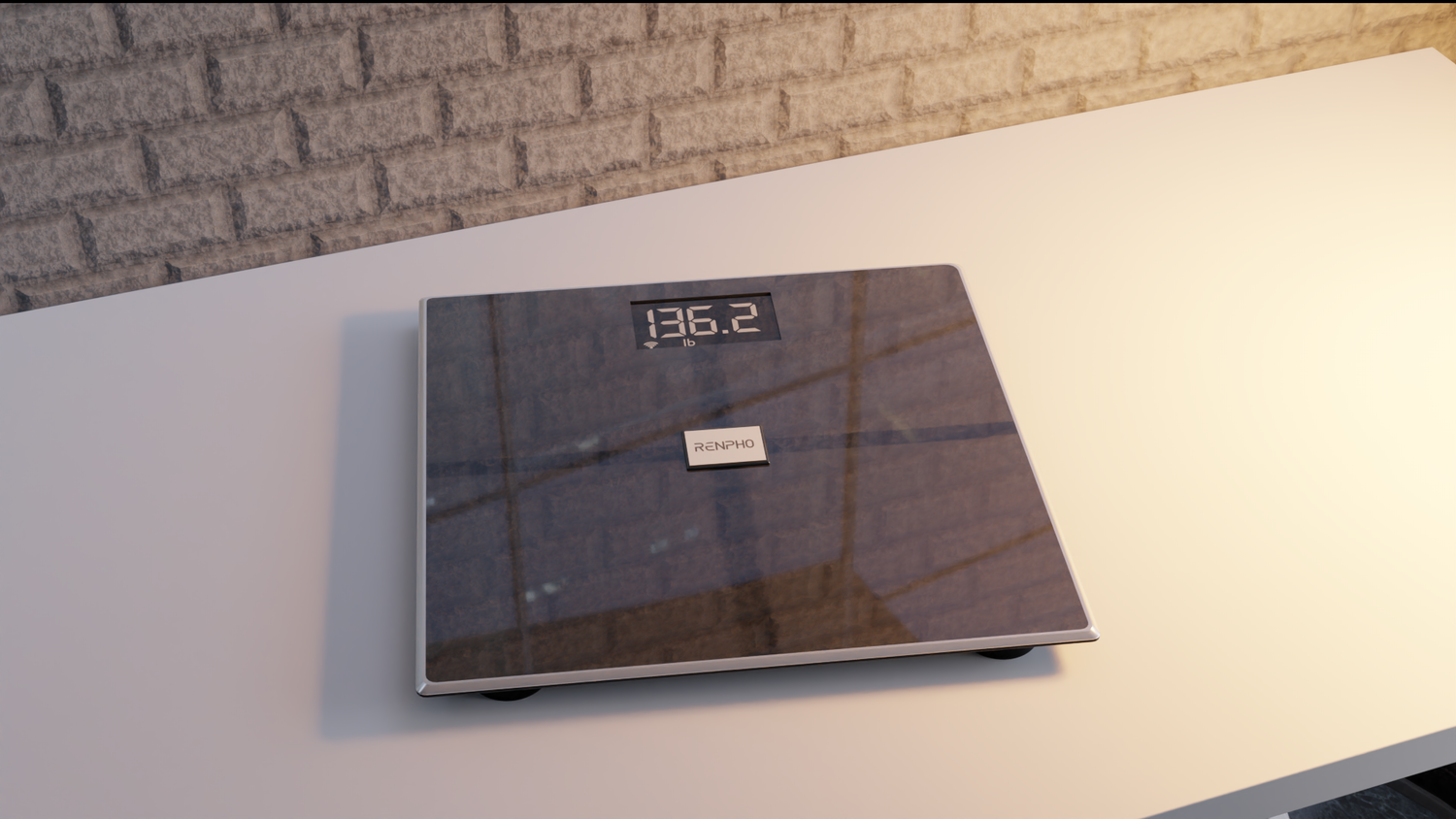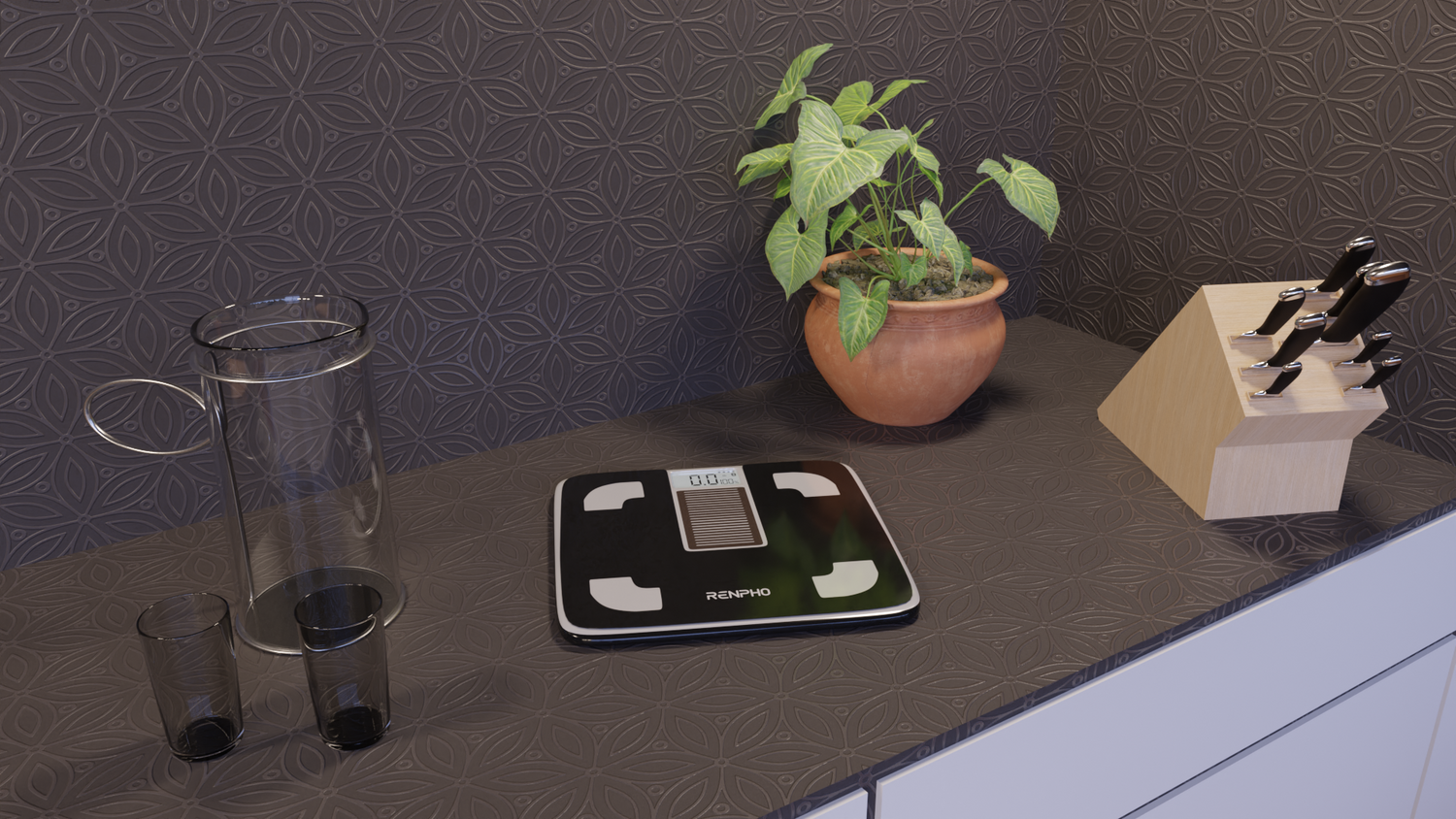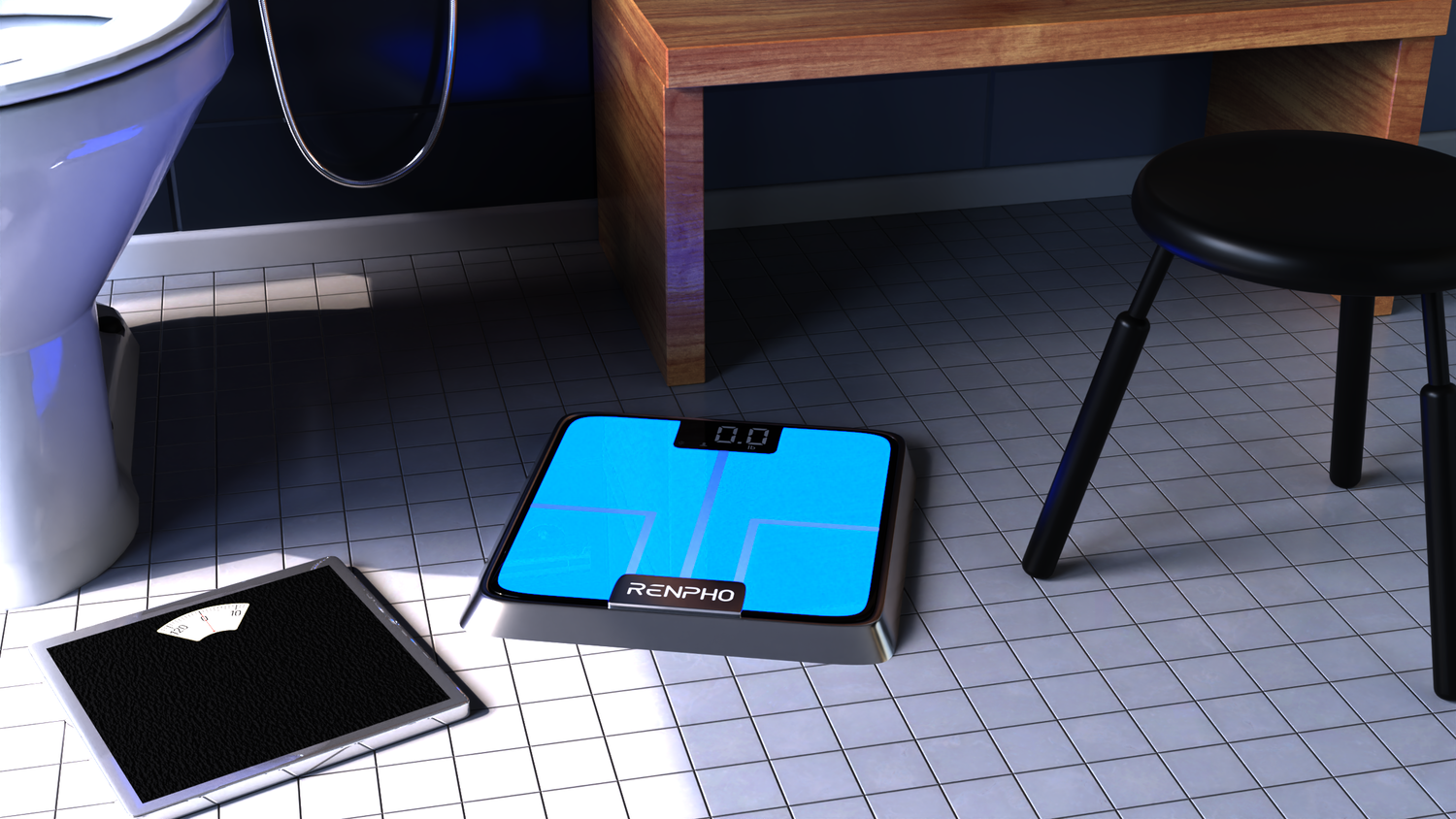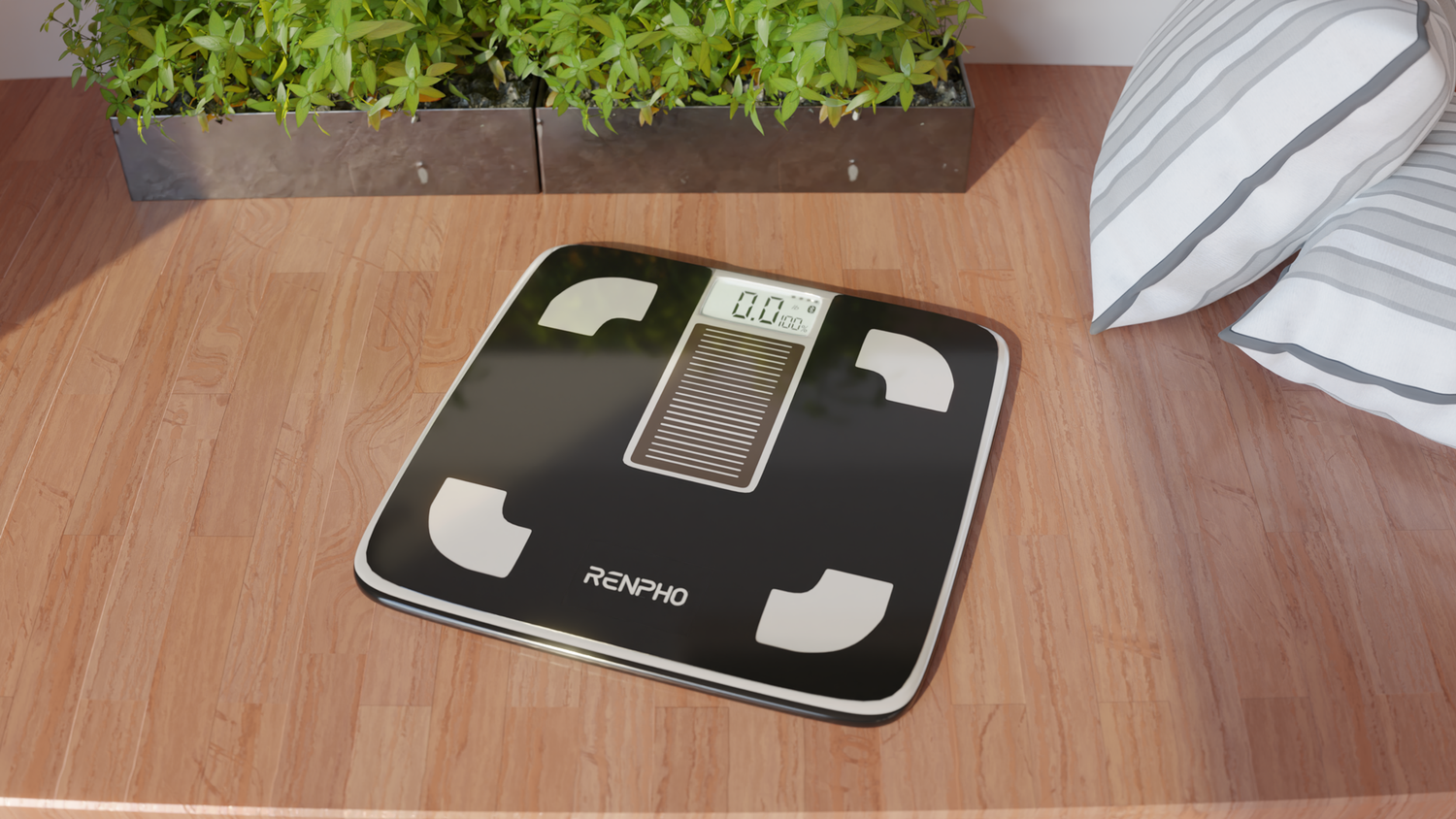In the quest for a healthy lifestyle, many of us rely on bathroom scales to track our weight and monitor our progress. Whether it's shedding those extra pounds or maintaining a stable weight, accurate measurements are crucial. But have you ever wondered how long your trusty bathroom scale will last before it starts to lose its accuracy? And when should you consider replacing it? In this blog, we'll provide you with some key indicators to help you determine when it's time to invest in a new one.
So, if you're curious to learn more about the lifespan of bathroom scales and when you should consider replacing them, keep reading. By the end, you'll have a clear understanding of how to keep your weight measurements accurate and how to choose the right time to upgrade your bathroom scale. Let's dive in!
Why Do Accurate Weight Measurements Matter?

Accuracy is essential when it comes to weight measurements for a variety of reasons, ranging from health and fitness to scientific and industrial purposes. Whether it's for monitoring an individual's weight for health reasons, ensuring precise dosages of medication, or measuring raw materials for production, the importance of accurate weight measurements cannot be overstated. A slight measurement error can have significant consequences, including incorrect dosing of medication, inaccurate nutritional monitoring, or even faulty product quality control. In a world that relies heavily on precise measurements for everything from personal health to global trade, the accuracy of weight measurements is crucial.
What Happens When You Monitor Your Weight Regularly?
Regular weight monitoring is crucial for overall health and wellness. It allows individuals to track their progress in achieving their health and fitness goals, whether it's weight loss, weight maintenance, or muscle gain. Consistently monitoring weight and body mass index ensures the maintenance of a healthy body composition.
Moreover, regular weight tracking prevents unnecessary stress about minor fluctuations and helps individuals understand that weight can naturally fluctuate due to factors such as water retention, menstrual cycle, or even the type of food consumed. Maintaining a consistent record of their weight enables individuals to better understand their body's natural variations and avoid unnecessary anxiety.
Additionally, monitoring weight regularly can help identify potential health issues early on. Sudden and unexplained changes in weight can be a sign of underlying health problems such as thyroid issues, diabetes, or even certain types of cancer. By recognizing these changes early, individuals can seek medical advice and intervention sooner, potentially improving their health outcomes.
What Factors Affect the Lifespan of Bathroom Scales?

Several factors can affect the lifespan and overall accuracy of bathroom scales. From the type of material used to the frequency of use, these factors can impact the durability and functionality of the scale over time. Understanding these factors can help individuals maintain the quality and reliability of their bathroom scales for longer periods, ensuring accurate weight measurements and consistent performance.
Quality of Materials Used in Making Bathroom Scales
Bathroom scales are typically made from high-quality materials such as tempered glass, stainless steel, or durable plastic. These materials contribute to the overall durability, sturdiness, and reliability of the scales, ensuring they can withstand regular use and fluctuations in weight without compromising accuracy. The tempered glass and stainless-steel construction also provide a sleek and modern look to the scales.
The choice of materials directly impacts the performance and accuracy of the scales. For example, tempered glass and stainless steel are known for their precision and ability to provide consistent weight readings. The use of high-quality materials also minimizes the risk of damage or breakage, ensuring the scales remain reliable over time.
How Often You Use Bathroom Scales
The frequency of use significantly impacts the lifespan of bathroom scales. Daily usage puts constant pressure on the scale's components, such as sensors, springs, or load cells, leading to faster wear and tear. The internal mechanisms responsible for accurate weight measurements undergo stress and strain with each use, which can impact their reliability over time. Accidental drops or impacts, common with daily usage, can also compromise the scale's accuracy and functionality.
Conversely, scales used intermittently tend to have a longer lifespan. Infrequent usage allows the internal components to rest and recover, reducing overall strain. However, even with intermittent use, the quality of the scale and its construction materials play a significant role in determining its lifespan.
Proper care and maintenance are essential, regardless of usage frequency. Avoid placing excessive weight on the scale, preventing strain on load cells or springs beyond their intended limits. Position the scale on a flat and stable surface to minimize stress on internal mechanisms. Additionally, store the scale in a dry and safe environment, away from moisture or extreme temperatures, to prevent damage to internal components and ensure accurate and reliable measurements.
Weight Capacity of Bathroom Scales
The weight capacity of a bathroom scale is another important factor influencing its lifespan. Most scales have a specified maximum weight limit, and exceeding this limit can lead to accelerated wear and potential damage to the scale's internal components.
Consistent weighing of individuals near or above the scale's weight capacity puts significant stress on the load cells or springs responsible for measuring weight. These components may become strained or reach their breaking point, resulting in inaccurate readings or complete malfunction of the scale.
To ensure the longevity of a bathroom scale, it is crucial to choose a scale that can handle the maximum weight requirements of the intended users. Consider the weight range of the individuals who will be using the scale regularly and select a scale with a weight capacity that comfortably accommodates those measurements.
Using a scale within its weight capacity is not only important for the scale's lifespan but also for accurate weight readings. When a scale is pushed beyond its limits, it may provide inconsistent or unreliable measurements, making it difficult to track progress or achieve health and fitness goals effectively.
When Is It Time to Replace Your Bathroom Scale?

Knowing when to replace your bathroom scale is essential for accurate and reliable weight tracking as they can become worn out over time, inaccurate, or dysfunctional, leading to unreliable readings. Understanding the signs that indicate it's time to replace your bathroom scale will ensure that you continue to monitor your weight effectively and make informed decisions about your health and fitness.
-
Inconsistent Readings
If you are experiencing inconsistent readings on your scale, there are several steps you can take to ensure accurate and consistent results. First, it is important to place the scale on a flat and hard surface to avoid any uneven weight distribution. This can cause the scale to give inaccurate readings. Additionally, checking the battery life of the scale as low battery levels can also lead to inconsistent readings. If the battery is low, replace it with a new one to ensure accurate measurements.
Furthermore, if the scale has been moved or transported, it is important to recalibrate it to compensate for any changes in its internal mechanisms. This can be done by following the manufacturer's instructions for recalibration. It is also crucial to avoid placing the scale on a thick carpet, as this can also lead to inconsistent readings. Lastly, avoid shock-loading the scale with heavy objects, as this can cause damage to the internal components and affect their accuracy.
By following these steps and ensuring that the scale is placed on a flat surface, has sufficient battery life, and is recalibrated, when necessary, you can avoid inconsistent readings and ensure that you receive consistent and accurate measurements.
However, if you still receive inconsistent readings despite following proper usage and other instructions, consider replacing your bathroom scale.
-
Water or Moisture Damage
When addressing water or moisture damage on a scale, it's important to thoroughly inspect the scale for any signs of water exposure. Check for any visible water damage, such as water stains, corrosion, or rust. If any are found, shut the device down immediately to prevent further damage and safety hazards.
After shutting off the scale, allow it to dry completely before attempting to use it again. This may involve removing any batteries and allowing the scale to air dry for at least 24-48 hours. It's crucial to ensure that the scale is completely dry before attempting to power it back on to avoid any electrical issues or damage.
By thoroughly inspecting the scale for water exposure, shutting it down immediately if water is found, and allowing it to dry completely before use, you can address water or moisture damage effectively and protect your scale from further damage. However, if the device is malfunctioning or refuses to work, consider replacing your bathroom scale.
-
Low or Unstable Battery
If your scale is displaying low or unstable battery indicators, the first step is to check the battery charge and connection. If the batteries are low, simply replace them with fresh ones or switch to using a power adapter if available. It’s always a good idea to keep spare batteries on hand to avoid any downtime.
If the low battery indicator continues despite new batteries or a power adapter, there might be an issue with the connection or the scale itself. In this case, it’s best to contact the manufacturer for further assistance.
By ensuring the battery charge and connection are secure and the scale is calibrated properly, you can address issues of low or unstable battery indicators as well as drifting or fluctuating weight readings. However, if the device is still displaying low or unstable battery indicators, consider replacing your bathroom scale.
-
Overloaded or Broken Components
Over time, the internal mechanisms of a scale can become worn out or damaged due to various factors such as frequent usage, exceeding weight limits, or accidental mishaps. When these components are compromised, it can significantly impact the scale's accuracy and reliability.
One common issue is overloaded components. If you consistently weigh yourself or others who are near or above the weight capacity of the scale, it can strain the load cells, springs, or other measuring mechanisms beyond their intended limits. This can lead to inaccurate readings or even complete failure of the scale. If you notice that the scale consistently provides inconsistent or erratic measurements, despite proper usage, it may be an indication that the components are overloaded or compromised.
Broken components are another sign that it's time to replace your bathroom scale. Accidental drops, impacts, or mishandling can cause internal parts to break or become misaligned. This can result in various issues, such as incorrect weight readings, non-responsive buttons or sensors, or even physical damage to the scale's exterior. If you observe any visible signs of damage, such as cracks, loose parts, or non-functioning elements, it may be an indication that the scale's components are broken or damaged.
In both cases, overloaded or broken components can affect the overall functionality and accuracy of the scale. Therefore, consider replacing the scale entirely instead of attempting to repair it yourself.
How to Make Your Bathroom Scales Last Longer?
To properly maintain and care for your bathroom scales, it is important to follow a few simple steps. First, it is crucial not to exceed the weight limit of the scales as this can cause internal damage. Make sure to keep the scales dry and clean to prevent any corrosion or damage to the internal components. Additionally, changing the batteries regularly will ensure that the scales function properly and accurately.
The common lifespan of bathroom scales is usually around 5-10 years with proper maintenance and care. However, if you notice any of the signs listed in this blog, it is recommended to replace the scales to ensure accurate measurements.
By following these simple maintenance and care tips, you can extend the lifespan of your bathroom scales and ensure that they continue to provide accurate measurements for years to come.
Takeaway
Accurate weight measurements are essential for health monitoring, medication dosages, and quality control. Factors that affect the lifespan and accuracy of bathroom scales include the quality of materials, frequency of use, and weight capacity. High-quality scales made from materials like tempered glass and stainless steel tend to be more durable. Regular care and maintenance, such as avoiding excessive weight and storing the scale properly, can extend its lifespan. Signs that it's time to replace a scale include inconsistent readings, water damage, low battery indicators, and broken components. By understanding these factors and taking appropriate measures, individuals can ensure accurate weight measurements and make informed decisions about their health and fitness.
Renpho Health Tips
-

5 Reasons Why Your Digital Scale Is Inaccurate
January 12, 2024
Read more >
-

Can Smart Scales Help You Determine if You're Dehydrated?
January 11, 2024
Read more >
-

Which One Is Better: Analog or Digital Bathroom Scales?
January 9, 2024
Read more >
-

Weighing In on Smart Scales: Are They Worth It?
October 24, 2023
Read more >
-

Cracking the Code: BMI and Body Fat Percentage
October 10, 2023
Read more >



































